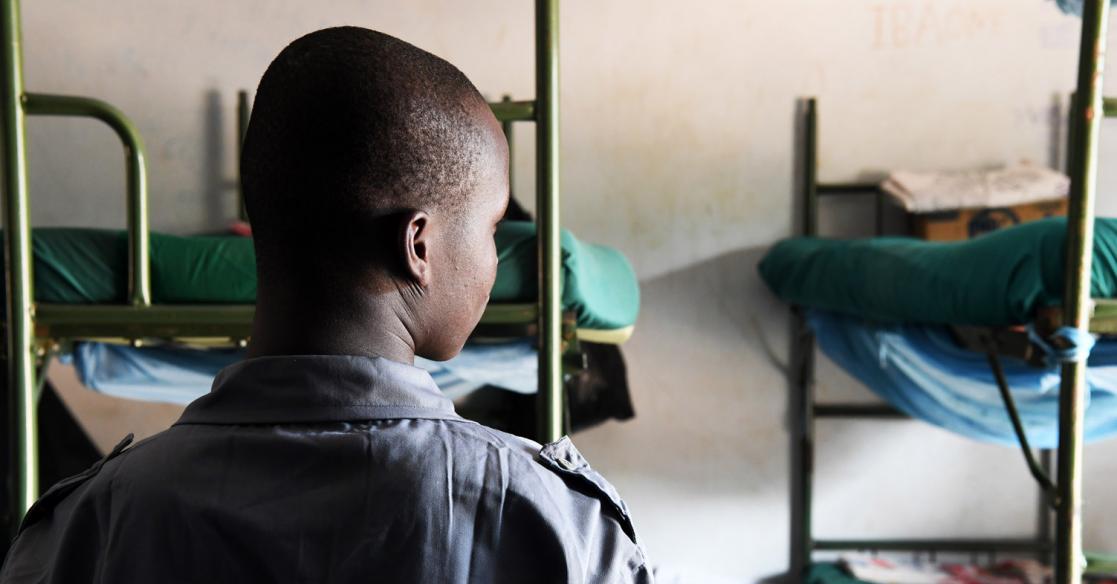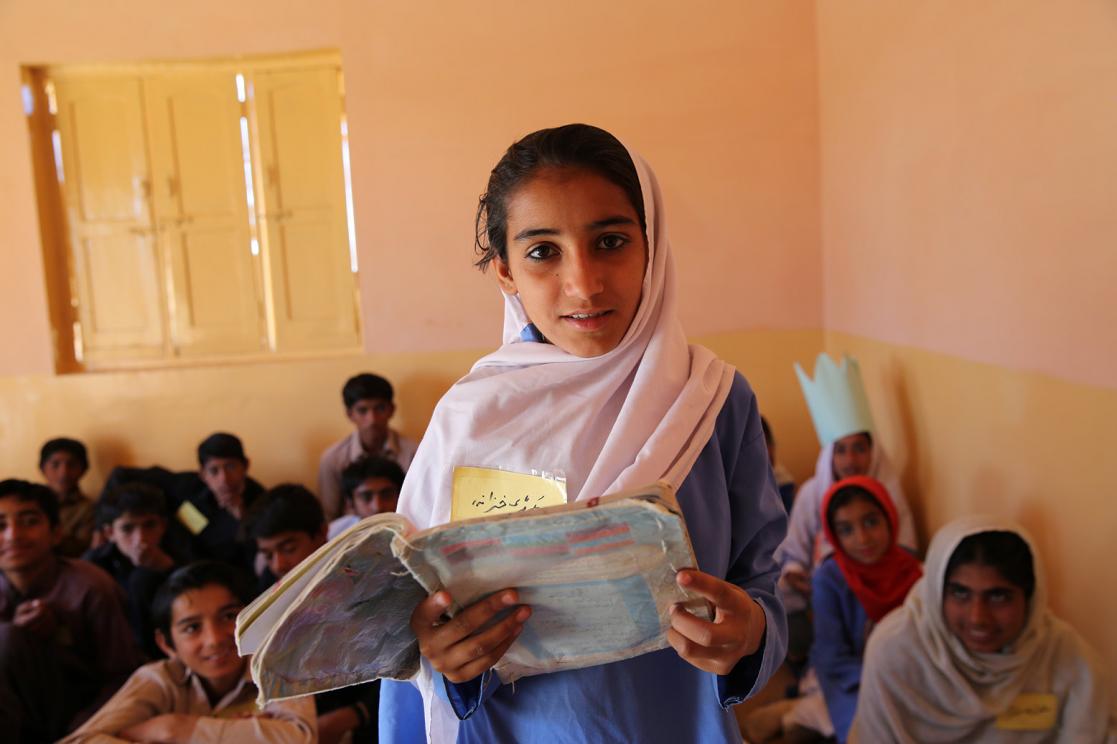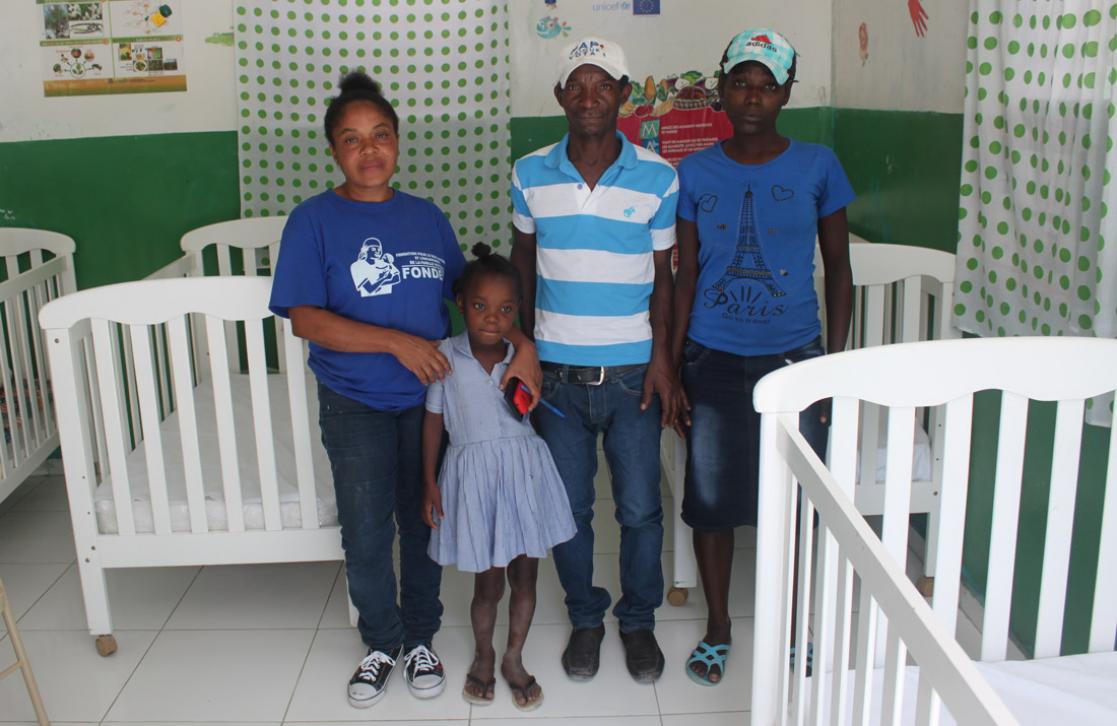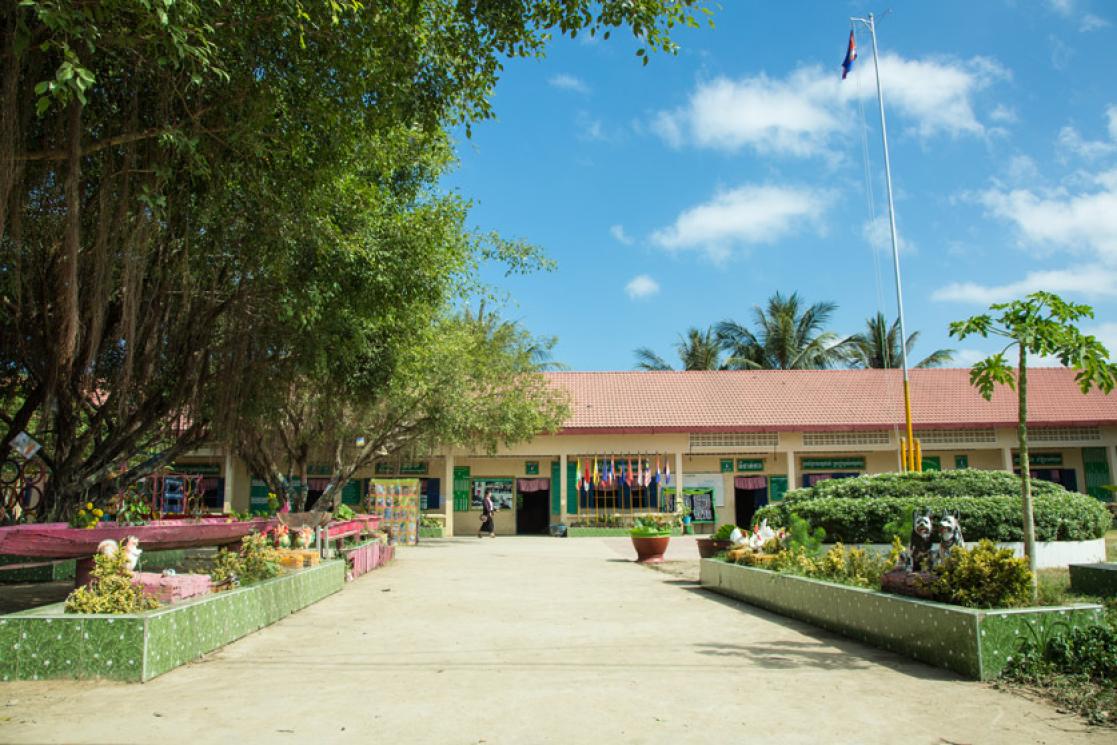EU-UNICEF committed to ensure no child is left behind

For several years, the EU and UNICEF have worked together to help a number of children around the world, supporting their wellbeing, development and protection. The EU invests heavily in providing children worldwide with education, safe drinking water, sanitation, health services, and in protecting them from all forms of violence and exploitation. In 2017 alone it contributed €458 million to UNICEF's work with children, adolescents and young people and their families. And, since 2012, EU funds have helped UNICEF provide education to more than 2.5 million refugees and displaced children caught up in emergencies around the world.
https://twitter.com/eu_eeas/status/1000001079428427777
Nour and Abdulrahman’s story – Syria
Many schools in Syria are overcrowded from hosting additional children due to the conflict, impacting the overall quality of learning. Basic services, like electricity, are a challenge. Such was the situation that Nour and her schoolfriend Abdulrahman experienced at the Hafez Ibrahim School, one of many schools in the city of Aleppo which eventually received solar panels, thanks to EU-UNICEF support to improve the schools’ environment, ensuring that classrooms are well lit.

© UNICEF/Syria 2018/Khudr Al- Issa
“Now, with the lights always on, I don’t have to stand next to the board to copy anymore” exclaims Nour, whose name incidentally is a common Arabic name meaning 'the light'. “Before, when the power was off, I could not see my own writing,” adds Abdulrahman, who had lost his left leg when his home in east Aleppo was hit by a shell. “I was playing on the balcony and I saw a red spot heading towards me from the sky, growing bigger and bigger,” he recalls. But despite his injury, Abdulrahman is a cheerful boy who still plays football with his friends, runs and even rides a bike using crutches.
Thousands of children in Aleppo have benefited from improved access to quality learning. Teachers also appreciate the positive changes. “The solar panels made a great difference in our school,” says Rawad Hallak. “Aside from lighting, we can use speakers, the projector, mega phones and other equipment which really help us do more activities for children,” adds the satisfied teacher.
Eric Mbota Kuame‘s story – Ivory Coast
When 16-year-old Eric’s parents separated, his uncle took him in but his wife didn't like him and made him leave while his uncle was away. He stayed with some friends who were a bad influence on him. He started using drugs with them and got involved in criminal activities until he got caught and taken to a center for under-aged criminals, which was part of a prison. In there, it was easy for him to get in touch with other criminals with whom he managed to do drugs. Eventually his uncle asked to have him transferred to the reinsertion center of M'Bahiakro, in the centre of the Ivory Coast. The center is supported by UNICEF and the European Union and gives children who have had a rough start in life a second chance.

© UNICEF/Frank Dejongh
“The first days here were not easy, even though it's really good here…” said Eric. “The discipline here made it even harder. I used to do what I wanted and never listened to anyone. After a few weeks though, I began to feel better. Life here is healthier and I've made the decision that I won't get into stupid stuff anymore once I'm released.” Eric is planning to apply what he learned at the center when he is out, “I'll look for a job in carpentry. That's something I've learnt here and I really like doing it.”
Rehana’s story – Pakistan
It's break time and children are excitedly heading to the play area at the UNICEF and EU supported Government Primary School in Mohib Ali Umrani, a small village in Jaffarabad, Balochistan. The school, originally a boys’ school, is now open to girls, amongst them Rehana Bibi, a fifth grader. Her school had previously lacked basic and sanitation facilities. The building, damaged by floods and heavy rains, was more a hazard than a facility itself. Furthermore the quality of education at the school was lacking and, like Rehana, many girls had dropped out at an alarming rate.
To improve the existing education system and provide children an impetus for quality learning, UNICEF with EU-funding support, initiated the Balochistan Basic Education Programme in 2016, led by the Education Department in Balochistan. The village Parent Teacher School Management Committee was reactivated, bringing new members, including Rehana’s father, Fateh Ali, on board and mobilising them to take steps for sustainable improvement in both the school’s environment and performance. A Local Education Council was also formed to align the process with the education reforms.

© UNICEF/Pakistan/Asadzaidi
Now happily back at school, Rehana convinced her father to send her two younger sisters to school, as well as her cousin. “I want to become a teacher and help girls get an education, and be successful in school,” she said. This experience transformed Rehana into an agent of change.
Wiselande’s story - Haiti
"When my daughter got sick, I did not know what to do.” The voice of Yves Prévert Larose from Savanette, is full of emotion when he talks about the situation of his 8-year-old daughter Wiselande, who suffered severe acute malnutrition. “I crossed the Dominican border to go to a health center, but they told me there was no hope. Then I spent almost everything on the healer, but no solution. I thought I was going crazy. But I could not bring myself to lose my child," he explains.
Thanks to EU funding, UNICEF carries out nutrition operations in the commune of Savanette which was greatly affected by the drought in 2016. A set of nutrition activities were carried out, including the establishment of community ambulatory therapeutic points in the mountains, the organisation of assembly stations where nutritional screening is carried out, and management of severe acute malnutrition, and vaccination, among others.

© UNICEF/2018/Bradley Maxence
Wiselande is on the road to recovery, but UNICEF Nutrition Officer Erline C. Mesadieu, points out that “the situation in these areas in terms of malnutrition is still worrying”, adding that “it is important to find funding to continue specific nutrition activities intensively in the town of Savanette.”
From underperforming to paradise schools – Cambodia
Educators in Banteay Meanchey are working with a new school improvement model called Sala Komroo Knong Khet Komroo, or ‘paradise schools’ in Khmer, to ensure institutions operate at their highest possible capacity to provide the best learning opportunities. The intervention is supported by a number of organisations including the EU and UNICEF. The principles of Sala Komroo are based on the four key principles of:
- students enjoying learning;
- teachers loving teaching;
- school directors happy leading and managing schools;
- and parents and communities active in supporting the schools.

© UNICEF Cambodia/2017/Bona Khoy
Samaki Meanchey Primary School is one of the schools which adopted this new education model. The school director, Ms Tap Savy, explains how in the past the school grounds were regularly muddy and prone to flooding, sometimes up to knee height, preventing students attending class. The windows and doors of the classrooms were open, exposing students to heat or heavy rains. The area was also littered with rubbish. With such a detrimental environment, it is not surprising that only a handful of children attended the school in 2010! Ms Tap used her own initiative, feedback from community members, staff and students, and adopted the Sala Komroo principles to transform the school into a model institution. The school is now a green, peaceful area with two playgrounds equipped for children of different ages, a well-kept environment, now welcoming several hundred students. “There has been a lot of change,” said Kong Vanna now a sixth grader who has been a student here since pre-school. “I am very happy here,” she added.

© UNICEF Cambodia/2017/Bona Khoy
Besides helping the children in these stories, amongst others, the EU-UNICEF partnership also provided emergency assistance to the population affected by last year’s earthquake in Mexico. A programme of civic engagement is empowering children and young people in Ukraine. In Bangladesh, emergency child protection and support was provided to Rohingya victims of gender-based violence. And, in Sudan, the EU and UNICEF are supporting the release of children and adolescents associated with armed forces and groups, and their reintegration into society.
The EU and UNICEF look forward to further strengthening their relationship in the future to support youth and children’s rights in the world. Improving the resilience of the younger generations at a local level contributes to peace and security at a global level.
https://twitter.com/unicefchief/status/999982181584957440
The meeting between High Representative Mogherini and UNICEF Executive director Fore, reaffirmed that the EU and UNICEF, as partners for children, will continue working hand-in-hand to reach the common goal of leaving no child behind.
In light of the adoption of the 2030 Agenda on Sustainable Development and its guiding principle to "leave no one behind", the EU is strengthening efforts to ensure the most marginalised and vulnerable children are reached by its policies and actions.
- The 2017 revised EU Guidelines on the Promotion and Protection of the Rights of the Child set out the EU's overarching strategy to promote and protect the Rights of the Child in its external action by operationalizing a system-strengthening approach.
- The "EU-UNICEF Child Rights Toolkit: Integrating child rights in development cooperation" is the result of fruitful cooperation between the EU and UNICEF to provide guidance and tools on how to integrate the rights of the child across all sectors of development cooperation.
